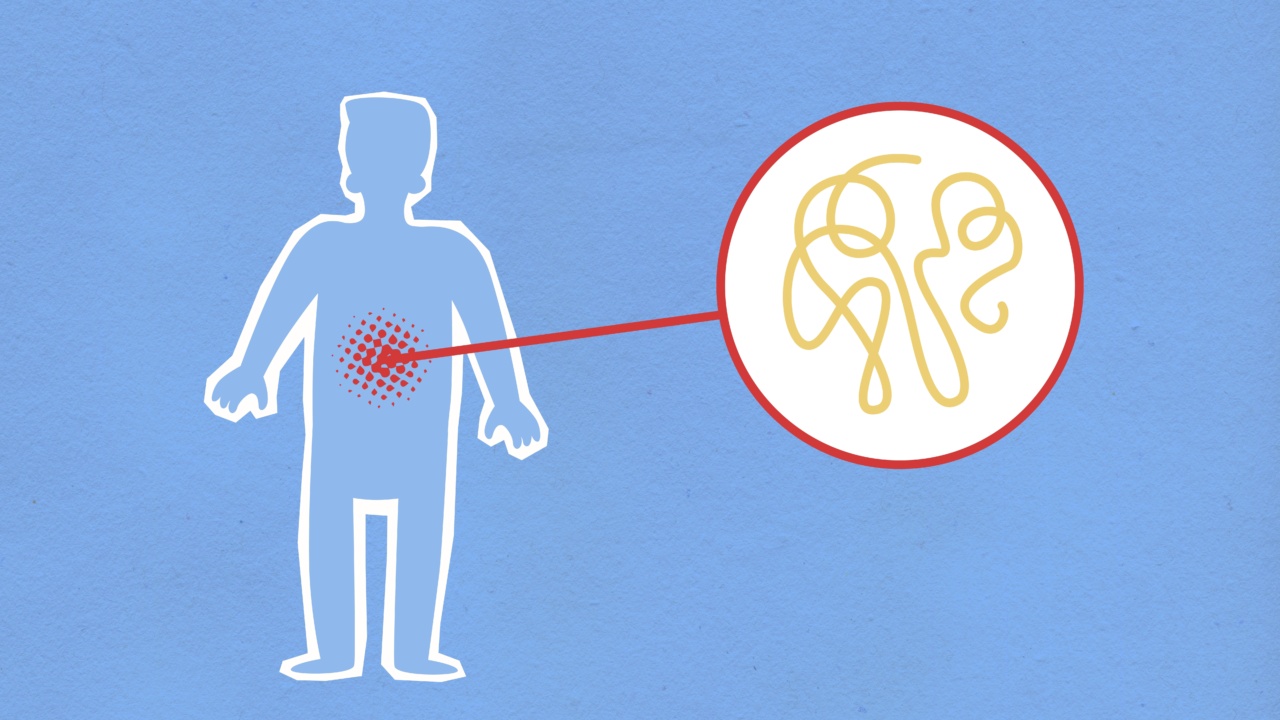Inflammation is a natural response of the immune system to foreign substances, infections, and injuries. When you get a cut, for instance, your body will send immune cells to the injured area to fight off any pathogens and start the healing process.
Similarly, when you contract a virus or bacteria, your body will launch an inflammatory response to contain and eliminate the threat.
However, inflammation can also occur in an uncontrolled and prolonged way, leading to chronic conditions. One of the organs that are particularly vulnerable to chronic inflammation is the intestine.
In this article, we will go through the A-Z of inflammation in the intestine, covering causes, symptoms, types, and treatment options.
Causes of Inflammation in the Intestine
Inflammation in the intestine can result from various causes, including:.
: Infections
Intestinal infections can trigger inflammation in the gut. Common pathogens that can cause inflammation include viruses, bacteria, fungi, and parasites.
The immune response can cause damage to the intestinal tissues and affect their function, leading to symptoms such as diarrhea, pain, and cramps.
: Inflammatory Bowel Disease (IBD)
IBD is a group of chronic conditions that involve inflammation in the digestive tract. The two main types of IBD are Crohn’s disease and ulcerative colitis.
Both conditions can cause severe inflammation in the intestine, leading to tissue damage, ulcers, and scarring. Symptoms of IBD include diarrhea, abdominal pain, blood in stool, weight loss, and fatigue.
: Autoimmune diseases
Autoimmune diseases occur when the immune system mistakenly attacks healthy cells in the body. Some autoimmune diseases can target the intestine and cause chronic inflammation.
Examples of autoimmune conditions that can affect the gut include celiac disease, which results from an adverse reaction to gluten, and autoimmune enteropathy, which involves damaged intestinal villi and malabsorption.
: Food intolerances
Some people can develop intolerance or allergy to certain foods, leading to inflammation in the gut. The most common food intolerances are lactose intolerance and gluten sensitivity.
Symptoms can include bloating, abdominal pain, diarrhea, constipation, and gas.
: Stress
Stress can affect the gut-brain connection and trigger inflammation in the intestine.
When you are stressed, your body produces stress hormones such as cortisol, which can weaken the intestinal barrier and make it more permeable to harmful substances, leading to inflammation.
Symptoms of Inflammation in the Intestine
The symptoms of inflammation in the intestine can vary depending on the cause and severity of the inflammation. Some common symptoms include:.
: Abdominal pain
Pain in the abdominal area is a common symptom of intestinal inflammation. The pain can be sharp or dull, and it may be felt in different parts of the gut, depending on the location of the inflammation.
: Bloating and gas
Intestinal inflammation can cause bloating and gas by disrupting the normal digestion process and causing food to ferment. This can lead to uncomfortable sensations of fullness and tightness in the abdomen.
: Diarrhea
Diarrhea is a common symptom of intestinal inflammation, especially when it results from infections or IBD. The inflammation can cause the intestinal walls to become more permeable, leading to water loss and loose stools.
: Constipation
On the other hand, inflammation can also lead to constipation by slowing down the transit of food through the gut and making the stool harder and dryer.
: Blood in stool
Intestinal inflammation can cause ulcers and bleeding in the gut, leading to blood in the stool. The blood may be bright red or dark, depending on the location of the inflammation.
: Fatigue and weakness
Chronic inflammation can affect the whole body and lead to fatigue, weakness, and malaise. This is because the immune system is constantly activated and uses a lot of energy to fight off the inflammation.
Types of Inflammation in the Intestine
There are various types of inflammation that can occur in the intestine, including:.
: Acute inflammation
Acute inflammation is a short-term response of the immune system to an injury or infection. It usually starts quickly and resolves within a few days or weeks. The symptoms of acute inflammation can include pain, redness, swelling, and heat.
: Chronic inflammation
Chronic inflammation is a prolonged and persistent response of the immune system to a stimulus. It can last for months or years and lead to tissue damage and dysfunction.
Chronic inflammation is often associated with chronic diseases such as IBD, autoimmune conditions, and cancer.
: Subacute inflammation
Subacute inflammation is an intermediate state between acute and chronic inflammation. It can last for several weeks or months and involve both acute and chronic elements.
Subacute inflammation is often observed in conditions such as rheumatoid arthritis and tuberculosis.
: Systemic inflammation
Systemic inflammation is a type of inflammation that affects the whole body and not just a specific organ or tissue. It can result from various causes, including infections, trauma, surgery, and chronic diseases.
Systemic inflammation can lead to symptoms such as fever, chills, fatigue, and weight loss.
Treatment Options for Inflammation in the Intestine
The treatment options for inflammation in the intestine depend on the underlying cause and severity of the inflammation. Some common treatments include:.
: Antibiotics
If the inflammation is caused by a bacterial infection, antibiotics may be necessary to eliminate the pathogen and reduce the inflammation. Antibiotics can be effective against conditions such as gastroenteritis and Helicobacter pylori infection.
: Anti-inflammatory medication
If the inflammation is chronic or caused by an autoimmune disease, anti-inflammatory medication can help reduce the symptoms and prevent further damage.
Examples of anti-inflammatory medication include corticosteroids, nonsteroidal anti-inflammatory drugs (NSAIDs), and biologic agents.
: Dietary changes
If the inflammation is caused by food intolerances or allergies, eliminating the offending foods from the diet can be effective in reducing the symptoms.
Similarly, following a low-inflammatory diet that includes plenty of fruits, vegetables, whole grains, and healthy fats can help reduce inflammation and promote gut health.
: Stress management
If stress is a contributing factor to the inflammation, stress management techniques such as meditation, yoga, and counseling can help reduce stress and improve gut health.
: Surgery
In severe cases of IBD or intestinal obstruction, surgery may be necessary to remove the affected parts of the intestine. Surgery can improve symptoms and prevent complications in some cases.
Conclusion
Inflammation in the intestine can be caused by various factors and lead to a range of symptoms and complications.
Understanding the causes, types, and treatment options for intestinal inflammation can help individuals manage their symptoms and improve their gut health.
It’s important to consult a healthcare professional if you experience persistent or severe symptoms of intestinal inflammation, as they can help diagnose the underlying cause and provide appropriate treatment.































